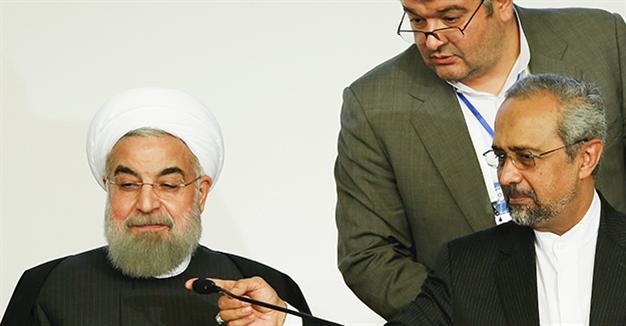Iran calls for full access to international banking, sees UK role
LONDON - Reuters

REUTERS Photo
Iran needs full access to the international banking system, the chief of staff to President Hassan Rouhani said on March 10, adding that London has an important role to play following the lifting of sanctions.
Mohammad Nahavandian also said Iran must regain its share of the global oil market before it would participate in any agreement among oil producing countries to restrict supply.
International sanctions against Iran, including banking restrictions, ended in January under a deal with world powers in which Tehran agreed to curb its nuclear program.
But Nahavandian, speaking at the Royal United Services Institute in London, said there should be greater clarity about the application of secondary U.S. financial sanctions to allow non-U.S. banks to conduct business freely with Iran.
“We need to see facilitation of banking relations as soon as possible and as complete as possible, and London can do that,” he said.
U.S. measures still in place have left non-U.S. banks and insurers wary of processing transactions with Iran.
“Big banks are still worried about primary sanctions from the United States, I think they have to come with a very clear interpretation drawing the line between primary sanctions and secondary sanctions,” he said. “Non-U.S. banks should not be limited in any kind of banking transactions with Iranian banks.”
Nahavandian suggested Britain could have moved faster to capitalize on the lifting of sanctions, adding: “Those who act quickly get the best results.”
Other European Union countries including Italy, France and Germany have already struck billions of dollar worth of deals with Iran.
British business Secretary Sajid Javid said on March 9 that he and other European counterparts were working towards easing the impact of banking restrictions, and that he would lead a trade delegation to Iran later this year.
Iran is focused on increasing its oil sales now it can trade more freely, but the oil price collapse since mid-2014 has led some big exporters to suggest an output freeze.
“Of course the oil market has to be managed more wisely,” Nahavandian. But “for Iran to participate in supply reduction, the prerequisite is to come to ... the share of the market it had and then from that position help with a decrease in supply.”
Nahavandian said Iran’s reliance on oil revenue was now minimal, and it was up to other producers to restrict supply.
